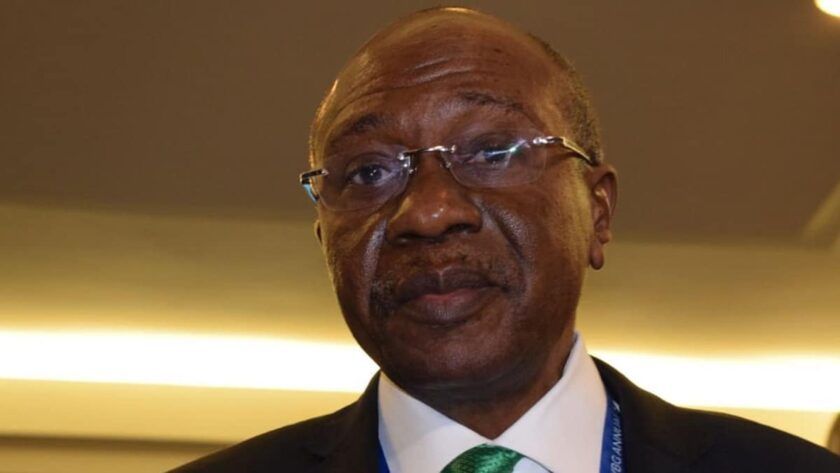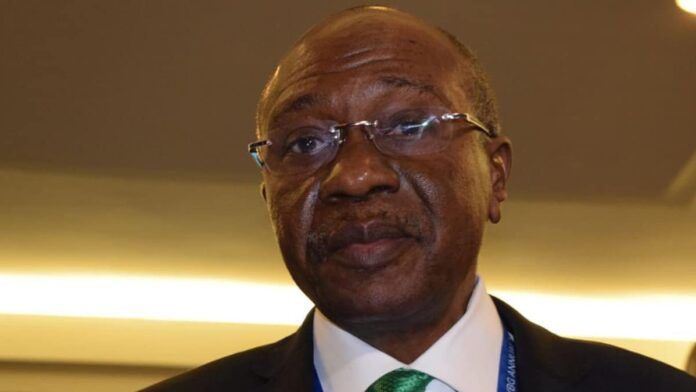Naira: Declining External Reserves Stokes Fear of Another Devaluation
Declining external reserves stoke fear of further devaluation as the monetary policy authority confirmed that Nigeria’s local currency, naira, is overvalued in the range of 5-10%. Analysts at CSL Stockbrokers wrote in a report that at an African Investors Conference, the CBN hinted that the local currency, naira, is overvalued by about 5-10%, with a fair value between US$430-440”.
Naira devaluation pushes more Nigerians into poverty, making prices of goods and services more expensive for locals. However, this could turn few people with positive net dollar position to gain, the recent pattern that lifted up some Nigerian banks’ earnings in 2020.
The local currency has been devalued severally and significantly under the present administration. In 2015, official exchange rate was N197 to a dollar, and it moved to N379 before the Central Bank’s unification with autonomous exchange rate at N410.
Analysts noted that foreign currency reserves hit a 13-month low despite the significant rebound in oil prices. Global oil prices have been stable in recent times riding on the improved demand outlook.

The oil market rally has failed to reflect positively on the movement in Nigeria’s external reserves amidst foreign exchange market intervention post-lockdowns.
Both foreign investors and remittances inflow has been limited to keep dollar inflow sufficient enough to meet demand by companies.
Recently, MSCI sends a warning to investors for a potential downgrade of Nigeria’s index due to what it tagged as extreme difficulty in currency repatriation.
Nigeria’s oil grades are in higher demand but supply appears to be lower according to a crude oil loading report from Reuters. Brent crude has crossed the $75 a barrel resistance level moving near $80 projected by Goldman Sachs.
Analysts at CSL Stockbrokers attributed the low impacts on an uptrend in the oil market to a contractual agreement while noting that key buyers of Nigeria crude are affected by the COVID-19 surge.
CSL Stockbrokers said in the commentary that Nigeria’s crude oil receipts are not spot delivered, while analysts think that the resumptions of CBN’s interventions at both the spot and forward markets in April must have increased pressure on the reserve.
“Beyond this, there are speculations that the surge in Covid-19 cases in India -one of the biggest buyers of Nigerian crude- must have affected demand for Nigeria’s crude oil, although there are no official numbers to back up this claim”, CSL Stockbrokers added.
Going by government estimates for foreign financing in the 2021 budget of N2.3 trillion or US$5.6 billion, CSL Stockbrokers think foreign commercial borrowing is likely inevitable.
“We expect Nigeria to raise between US$4.0-5.0 billion this year. For us, we believe the relatively high oil price environment bodes well for a successful Eurobond issuance”, analysts added.
Furthermore, investment analysts expressed the view that foreign investors remain interested in African Eurobond, judging by the recent high subscription rate of 5x of Kenya’s Eurobond.
On the balance of the external reserve, analysts also think the proposed increased Special Drawing Rights (SDR) allocation by the International Monetary Fund (IMF) for its member countries could support reserve accretion.
The expectation is that Nigeria’s SDR allocation will likely be increased by about US$3.0 billion as the multilateral lender promised to support Africa countries.
CSL Stockbrokers analysts think that the SDR expectation could prompt the government to approach the IMF for further RCF-type financing when the allocations are concluded in the third quarter of the year.
“…at an African Investors Conference (AIC) held, the CBN stated that the currency is overvalued by about 5-10%, with a fair value between US$430-440.
“This aligns with our views. Also, it was stated that as of March 2021, the backlog of unmet FX demand by foreign portfolio investment (FPIs) is estimated at less than US$1.0bn and a framework has been initiated in conjunction with banks to clear the remaining backlog”, CSL Stockbrokers hinted.
Naira: Declining External Reserves Stokes Fear of Another Devaluation









